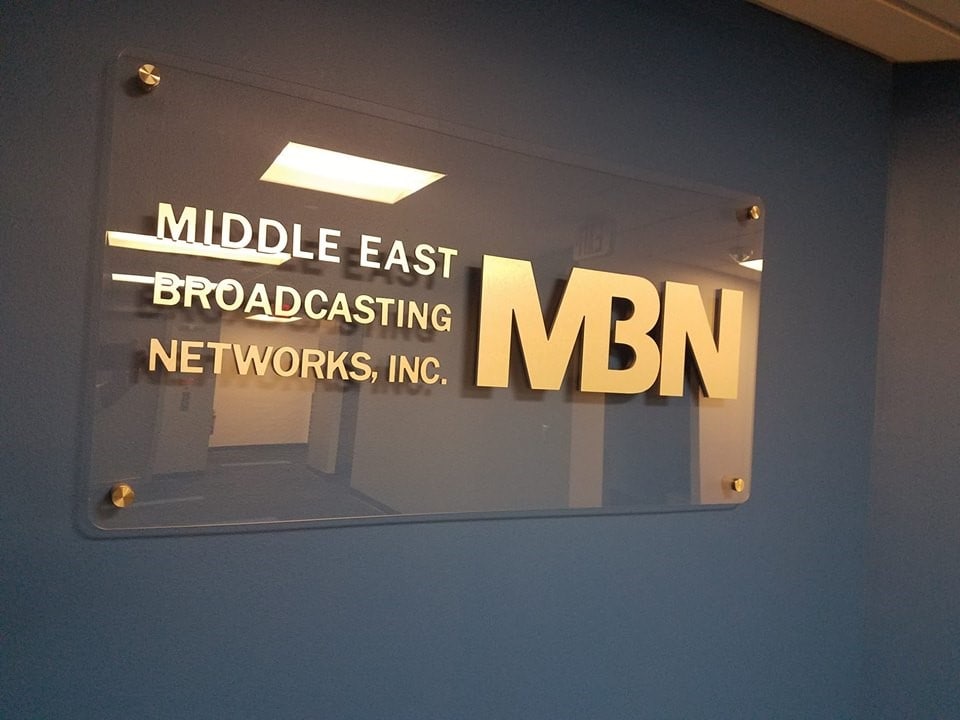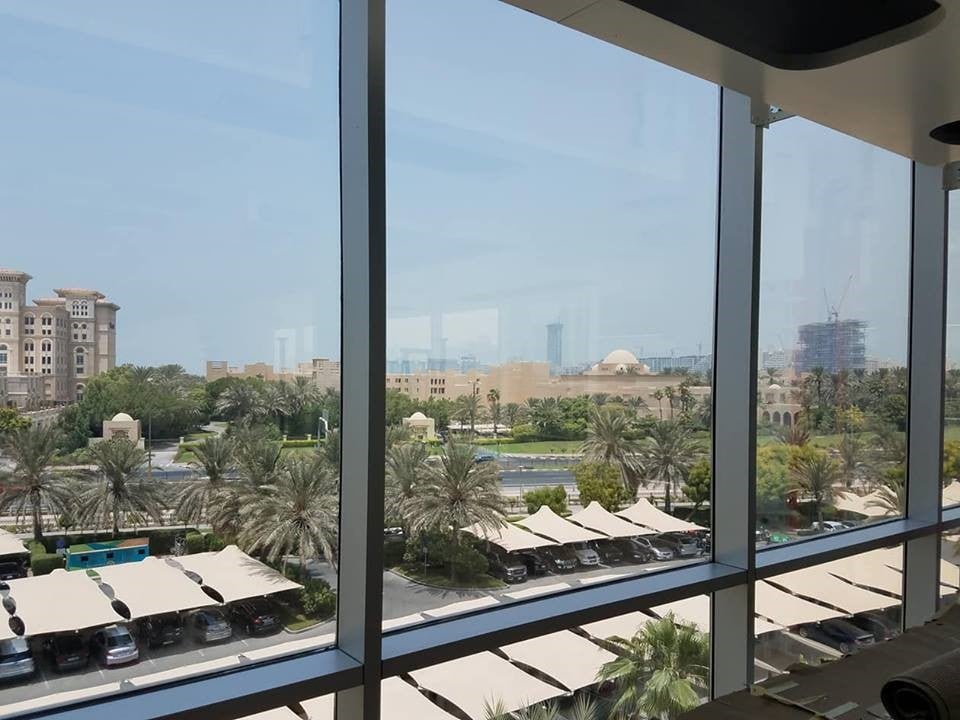
Does the United States have anything meaningful to say to Arabic-speaking audiences in the Middle East? The obvious answer is, "yes, of course." But some have told me that, in the Age of Trump, the answer would be "no."
As a U.S. Foreign Service Officer serving for more than three decades in the field of public diplomacy, I have actually heard the same refrain during every American administration, from Reagan to Obama. The naysayers would claim that America is too hated, too isolated, and too disbelieved. Its policies too noxious. That anything and everything that has an American label is automatically rejected.
In my experience, the reality is much more nuanced and complicated. Arabic-speaking audiences are (like domestic U.S audiences) complex, their motivations and concerns are multi-faceted. The Obama of that much-praised Cairo speech in 2009 was later the despised Obama of that Syria policy from 2013 until the end of his presidency. Some of the issues that move many Americans on President Trump are important to Middle East audiences and some are not. The April 2017 airstrike on the Syrian regime's air force, derided by some in America, was well received by many in the Middle East as one overdue righteous strike against Assad's impunity.
Many of these issues were on my mind when I accepted the offer of the U.S. Agency for Global Media (USAGM) in July 2017 to head Middle East Broadcasting Networks (MBN), which produces all USG-funded Arabic language media, including Al-Hurra Television, Radio Sawa, and several large social media platforms.[1]
I had heard the complaints through the years. I had made some of them myself.[2] Some complained that the content of Al-Hurra was dull. Others told me that our image both on television and social media seemed “poor and technically backward” compared to, for example, RT Arabic.[3] Still others pointed out that MBN often seemed 'late' to breaking news or regional events, perhaps because it was based in the United States. For some, there was little distinctive in what was offered. Other stations had more news. Networks available in Arabic like NatGeo and Discovery had more compelling documentaries.
Certainly, any attempt at transforming broadcasting to the Arab world must be grounded in a sense of humility at the task at hand and a recognition that the region is saturated by media options. Those options feature, of course, overwhelmingly the discourse of ruling regimes and of various brands of contending political Islam waiting in the wings. More than anything else, the loudest voices in the region are those of authoritarians. These are both homegrown and augmented by the likes of Russia, Iran, and Turkey. Al-Hurra, which is one of the oldest pan-Arab media networks, had failed to keep pace in much of the region with newer competitors.
We began by formulating a plan for MBN's transformation to address the basic technical and aesthetic challenges so many had mentioned. In a tight budgetary environment, we were able to address the time zone question by building a new studio in Dubai. Tripling the amount of news to 12 hours a day gave us the flexibility needed to cover events in the region and in the United States with greater freedom. Newly recruited personnel and internally promoted staff gave new vitality to the broadest effort at transformation since MBN’s founding in 2003. All these changes culminated in a November 4th, 2018 relaunch.[4]

These were obvious fixes. U.S Broadcasting has a mandate to communicate the whole story on America, both government and people, both the good and the bad. But also to give voice to the voiceless, to serve as a space for thoughts and ideas that are often suppressed in certain parts of the world.[5]
A sharper image and an aggressive newsgathering posture were just part of the change. Al-Hurra's online space became a lively new haven for a freewheeling opinion featuring almost 30 digital columnists from the region and the United States, expressing their views without censorship or political “redlines.”[6]
In 2018, new current affairs programs featuring Arab intellectuals and activists Samuel Tadros, Ammar Abdulhamid, Ibrahim Al-Issa, Joumana Haddad, and Islam Al-Buheiri were also an attempt to promote change and openness. Not anything as ambitious as "democracy" or "liberalism" or "reform," but rather more humble progress in critical thinking, free inquiry, and reasoned discourse was the goal. Upcoming limited series including the stories of why Middle East migrants fled the region and what they found in America, and a fresh look at American history will provide richer and more rounded insights at the American experience for Arabic-speaking audiences. At the very least, we want to offer viewers a choice not an echo.[7]
The goal is to provide a voice for Arab audiences that is distinctively American, enlightened, brave and reform-minded. What has been the response to date to this experiment? If we judge by the reaction of adversaries, we have certainly caught their attention. "Al-Akhbar," considered close to Lebanese Hizbullah, was the first, in August 2017, slamming Al-Hurra for "malicious and dangerous" reporting.[8] That report covered bigoted anti-Shia propaganda outlets funded by Salafis and the equally problematic outlets controlled by Hizbullah and Iran. A month later "Al-Akhbar' followed up with an attack on an opinion column on the anniversary of the birth of Theodore Herzl.[9] By September 2018, "Al-Akhbar" was speculating that "Al-Hurra"s relaunch would be a heady mix of "sex and (counter) extremism!"[10]
The next wave of criticism came from an unexpected source; U.S ally Egypt's heavily controlled media, with several dozen articles and television reports[11] from November 2017 to August 2018 lambasting Al-Hurra for all sorts of things: being a tool of Islamists, of anti-Muslims, of Israel, of the Pentagon and the CIA.[12] While in all these cases, disgruntled former employees may have played a role, this scripted wave of attacks seemed less about a specific action than generalized institutional disparagement against an independent media outlet outside government control.[13]
While Iran's proxies in Lebanon were early critics, Iran's proxies in Iraq joined them in 2018 using very similar language.[14] One ostensible reason was an investigative report on the corruption wrought by Iranian controlled militias and parties in the restive Iraqi city of Basra.[15] The charge was that "Al-Hurra Iraq" Television shifted from being "independent" to being anti-Iran.[16] Like in Lebanon, the claim was that MBN now had a strong line against the "axis of resistance" (the term used to refer to Hizbullah, Hamas, Assad's Syria, etc. and Iran, of course).
Of course, not all the Arabic media coverage of MBN's transformation in 2018 was negative.[17] There was positive or straightforward coverage in some of the most important mainstream outlets.[18] But in terms of sheer volume, October-November 2018 saw much more negative content emerging from the "axis of resistance" friendly crowd. They were joined in their attacks in November 2018 by Qatari media outlets friendly to the Muslim Brotherhood, including an attack by an open admirer of Osama Bin Ladin writing for the London daily Al-Quds Al-Arabi.[19] An additional charge was that an American media outlet that features critical coverage of Iran or terrorists was not serving U.S interests but those of Qatar's rivals in the UAE and Saudi Arabia.[20] Strange but understandable given the deep polarization in the region today.
Of course, a surer test of MBN's successful transformation will not be the attacks of American adversaries in the region, but the response over time by skeptical Arab audiences looking for something different. Used to being manipulated, these demanding and discerning audiences will settle for nothing less than media – wherever it comes from – that is highly professional, technically proficient, compelling and that speaks credibly to the real concerns of their hearts.[21] That is the challenge and has been since day one.
*Alberto M. Fernandez is President of MBN. The views expressed herein are solely those of the author and do not necessarily reflect the official views of the U.S. Government.
[1] Thenational.ae/world/the-americas/arabic-tv-station-al-hurra-should-have-rivalled-al-jazeera-but-has-yet
-to-find-its-voice-1.617037, August 5, 2017.
[2] Propublica.org/article/alhurras-baghdad-bureau-mired-in-controversy-708, July 8, 2008.
[3] Interpretermag.com/tag/rt-arabic/ October 12, 2018.
[4] Broadcastprome.com/news/alhurra-tv-to-launch-on-nov-4-across-middle-east-with-new-look-and-programmes/?fbclid=IwAR35rCIMpyCIMRZH
dASBCo7Ku2G1hIwSxP8TGTxgAtkyUkb89m1Nv7lCC2E, November 3, 2018.
[5] Bbg.gov/wp-content/media/2012/01/BroadcastingAct.pdf.
[6] Alhurra.com/Opinions.
[7] Theimaginativeconservative.org/2012/11/the-best-presidential-campaign-speech.html, November 4, 2012.
[8] Al-akhbar.com/Media_Tv/236296, August 12, 2017.
[9] Al-akhbar.com/Media_Tv/237736, September 15, 2017.
[10] Al-akhbar.com/Media_Tv/257104?fbclid=IwAR15l5fTFTeG1bcoM_QJDJXnHEtnkN
A4EXFG1FolrlA_CKkQkV1rRPQ4_fQ, 2018.
[11] Youtube.com/watch?v=w6xh3GdedjI&feature=youtu.be&t=45m25s&fbclid=IwAR1qGtd-D9Wi1Jz1IFy6oRhComwGTMJUoB6ld7mm4wlMbRId
7FJnjYRuQq0, November 11, 2017.
[12] Youtube.com/watch?time_continue=23&v=OCePXy_iLYE&fbclid=IwAR2-9ew1jloBEMaFpkSDHqME
-qoobHAbXtUNTXU0NB-GBJeLWUExgvbSvao, August 9, 2018.
[13] Elfagr.com/2835796?fbclid=iwar1c34vcyze8qidicpvkwd-6arquklhyiojs7likv1bc1tnbwgvcm9nynu0.
[14] Iraqhuffpost.com/%D9%82%D9%86%D8%A7%D8%A9-%D8%A7%D9%84%D8%AD%D8%B1%D8%A9-%D8%AA%D9%87%D9%8A%D9%83%D9%84-%D9%86%D9%81%D8%B3%D9%87%D8%A7-%D9%88%D8%AA%D8%B3%D8%AA%D8%B9%D8%AF%D9%84%D9%84%D8%AD%D8%B1%D8%A8-%D8%B9%D9%84/
?fbclid=IwAR2_ea9mgtes53EPIucWF5
_sBCYupdWNY98chpVxIRWFFqaGUfCor7hl2k4, October 19, 2018.
[15] Youtube.com/watch?v=PPqYB08p1WQ&feature=share, October 29, 2018.
[16] Baghdadtoday.news/ar/news/62297/%D8%A7%D9%84%D8%AD%D8%B1%D8%A9-%D8%B9%D8%B1%D8%A7%D9%82-%D8%AA%D8%AE%D8%AA%D9%81%D9%8A-%D9%88%D8%A7%D9%84%D8%B5%D8%AD%D9%81%D9%8A%D9%88%D9%86%D8%
A7?fbclid=IwAR0yAJMXSmUi7Rh1H1S9q
DwOW4R5QZueEralzPIUHAejk4RkorliH8Ur2nM, September 14, 2018.
[17] Mideastcenter.org/research-blog/the-new-face-of-al-hurra-an-interview-with-alberto-fernandez?fbclid=IwAR2forNGA4x5-QCMcVAuc-vKTjj6fmHJuR7wz5yc
DZM5-TUleGWbHzEt1dI, November 11, 2018.
[18] Aawsat.com/home/article/1478426/%D8%A3%D9%84%D8%A8%D8%B1%D8%AA%D9%88-%D9%81%D8%B1%D9%86%D8%A7%D9%86%D8%AF%D9%8A%D8%B2-%D9%84%D9%80-%C2%AB%D8%A7%D9%84%D8%B4%D8%B1%D9%82-%D8%A7%D9%84%D8%A3%D9%88%D8%B3%D8%B7%C2%BB-%D9%84%D9%8A%D8%B3%D8%AA-%D9%84%D8%AF%D9%8A%D9%86%D8%A7-%D8%AE%D8%B7%D9%88%D8%B7-%D8%AD%D9%85%D8%B1%D8%A7%D8%A1-%D9%84%D9%83%D9%86-%D8%A7%D9%84%D9%85%D9%86%D8%B7%D9%82%D8%A9-%D8%A7%
D9%84%D8%B9%D8%B1%D8%A8%D9%8A%D8%A9, November 26, 2018.
[19] Alquds.co.uk/%D8%A7%D9%84%D8%AD%D8%B1%D8%A9-%D8%A7%D9%84%D8%AA%D9%8A-%D8%A7%D8%B4%D8%AA%D8%B1%D8%AA-%D8%A7%D9%84%D8%AA%D8%B1%D8%A7%D9%85/?fbclid=IwAR0qpGFbchNCvZrr5SQgRCkUduPYpZC3j
4rIfR9Ba8zRVPHEnFfg9VNH51s, November 9, 2018.
[20] Ultrasawt.com/%D9%87%D9%84-%D8%A7%D8%B4%D8%AA%D8%B1%D9%89-%D8%A7%D8%A8%D9%86-%D8%B2%D8%A7%D9%8A%D8%AF-%D9%82%D9%86%D8%A7%D8%A9-%D8%A7%D9%84%D8%AD%D8%B1%D8%A9%D8%9F-%D8%A7%D9%84%D8%AA%D9%81%D8%A7%D8%B5%D9%8A%D9%84-%D8%A7%D9%84%D9%83%D8%A7%D9%85%D9%84%D8%A9-%D9%85%D9%86-%D9%85%D8%B5%D8%A7%D8%AF%D8%B1-%D8%AE%D8%A7%D8%B5%D8%A9/%D8%A7%D9%84%D8%AA%D8%B1%D8%A7-%D8%B5%D9%88%D8%AA/%D8%B1%D8%A7%D8%B5%D8%AF/%D8%B9%D8%
B4%D9%88%D8%A7%D8%A6%D9%8A%D8%A7%D8%AAfbclid=IwAR1gQyh7cYXXEPiWk4z0CAA
S165SpuMC5uBXO5jlA6qJGAsohnEAfGFTIRU, November 21, 2018.
[21] Arabyouthsurvey.com, 2018





